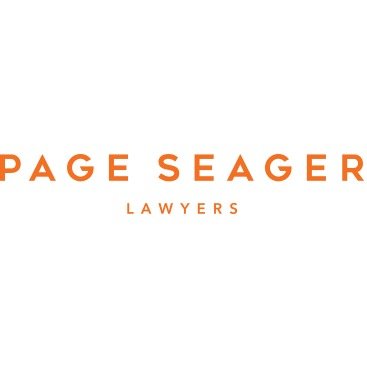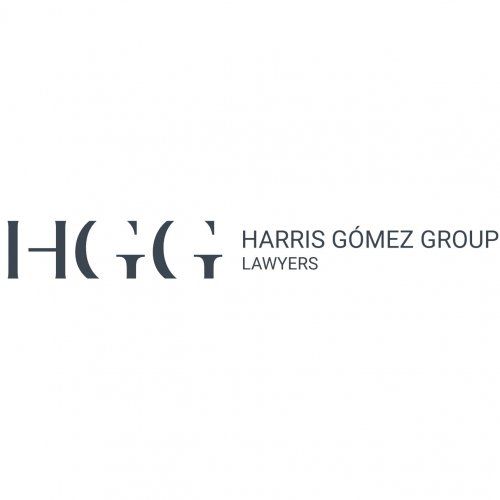Best Intellectual Property Lawyers in Australia
Share your needs with us, get contacted by law firms.
Free. Takes 2 min.
Or refine your search by selecting a city:
List of the best lawyers in Australia
About Intellectual Property Law in Australia
Intellectual Property (IP) law in Australia focuses on the creation, protection, and enforcement of rights over intangible property, including inventions, designs, brands, and creative works. The legal framework aims to balance the interests of creators and the public, encouraging innovation while ensuring access to new ideas and technologies. The main types of IP rights in Australia include patents, trademarks, copyrights, designs, and trade secrets.
Why You May Need a Lawyer
Engaging a lawyer for IP matters can provide critical support in various situations, such as:
- Filing and Registration: Navigating the complexities of obtaining patents, registering trademarks, and securing copyright protection.
- Infringement Issues: Defending against or making claims of IP infringement can be legally intricate and require expert guidance.
- IP Strategy and Management: Developing a comprehensive IP strategy to protect business assets effectively.
- Licensing Agreements: Crafting or reviewing contracts that grant IP rights to others, ensuring terms are favorable and enforceable.
- Disputes and Litigation: Representing clients in court or alternative dispute resolution proceedings related to IP conflicts.
Local Laws Overview
Australia has a robust IP legal framework governed by specific legislation:
- Patents: Governed by the Patents Act 1990, patents protect inventions that are novel, involve an inventive step, and are useful.
- Trade Marks: The Trade Marks Act 1995 outlines the process for registering a trademark, which uniquely identifies goods or services.
- Copyrights: Covered under the Copyright Act 1968, copyright protects original literary, artistic, dramatic, and musical works.
- Designs: The Designs Act 2003 protects the visual appearance of a product, not how it works.
- Trade Secrets: Although not formally protected by statute, trade secrets are safeguarded through contractual and common law principles.
Frequently Asked Questions
What is intellectual property?
Intellectual property refers to creations of the mind that are legally recognized and protected, such as inventions, literary and artistic works, designs, symbols, names, and images.
How do I protect my invention in Australia?
You can protect your invention by applying for a patent through IP Australia, which grants exclusive rights to the inventor for a certain period.
What is the difference between a patent and a trademark?
A patent protects technological inventions, while a trademark is a sign that distinguishes goods or services of one business from those of others.
How long does copyright last in Australia?
In Australia, copyright generally lasts for the life of the creator plus 70 years. Specific durations can vary depending on the type of work.
Do I need to register my copyright?
No, copyright is automatically assigned when an original work is created and fixed in a tangible form.
Can I patent an idea?
No, patents can only be obtained for inventions that provide a new and inventive solution to a technical problem.
What is the process for disputing an IP infringement?
The process usually involves negotiations, mediation, or, if necessary, taking legal action in court to resolve the dispute.
How can I license my IP rights?
Licensing involves drafting a legal agreement granting permission to others to use your IP under specified conditions.
What is meant by 'public domain'?
Public domain refers to works not protected by intellectual property laws, available for public use without restriction.
How are IP rights enforced in Australia?
IP rights are enforced through civil court actions, where the rights holder seeks remedies such as injunctions or damages.
Additional Resources
Below are some resources that can help you with IP-related queries in Australia:
- IP Australia: The official government agency managing IP rights and providing detailed guidance on registration and protection.
- Australian Copyright Council: A non-profit organization offering information, advice, and training on copyright law.
- Arts Law Centre of Australia: Provides legal services and resources specifically for artists and creators.
- Business.gov.au: Offers detailed guides and resources for businesses on managing and protecting IP.
Next Steps
If you find yourself needing legal assistance with IP matters, consider these steps:
- Research: Start by gathering information on your IP issue and understanding your rights and obligations.
- Consult with Professionals: Reach out to a lawyer specialized in intellectual property for professional advice tailored to your situation.
- File Applications: Prepare and submit any necessary applications, such as for patents or trademarks, based on expert guidance.
- Monitor and Enforce: Continuously monitor your IP rights and be prepared to enforce them if infringements occur.
Lawzana helps you find the best lawyers and law firms in Australia through a curated and pre-screened list of qualified legal professionals. Our platform offers rankings and detailed profiles of attorneys and law firms, allowing you to compare based on practice areas, including Intellectual Property, experience, and client feedback.
Each profile includes a description of the firm's areas of practice, client reviews, team members and partners, year of establishment, spoken languages, office locations, contact information, social media presence, and any published articles or resources. Most firms on our platform speak English and are experienced in both local and international legal matters.
Get a quote from top-rated law firms in Australia — quickly, securely, and without unnecessary hassle.
Disclaimer:
The information provided on this page is for general informational purposes only and does not constitute legal advice. While we strive to ensure the accuracy and relevance of the content, legal information may change over time, and interpretations of the law can vary. You should always consult with a qualified legal professional for advice specific to your situation.
We disclaim all liability for actions taken or not taken based on the content of this page. If you believe any information is incorrect or outdated, please contact us, and we will review and update it where appropriate.
Browse intellectual property law firms by service in Australia
Australia Attorneys in related practice areas.
Browse intellectual property law firms by city in Australia
Refine your search by selecting a city.
















